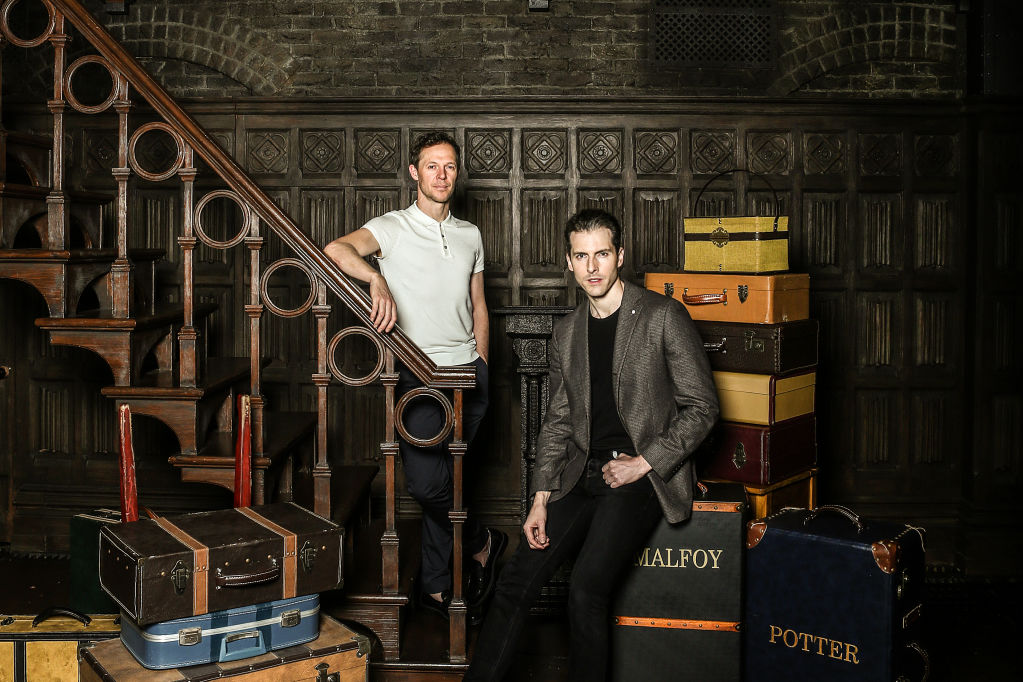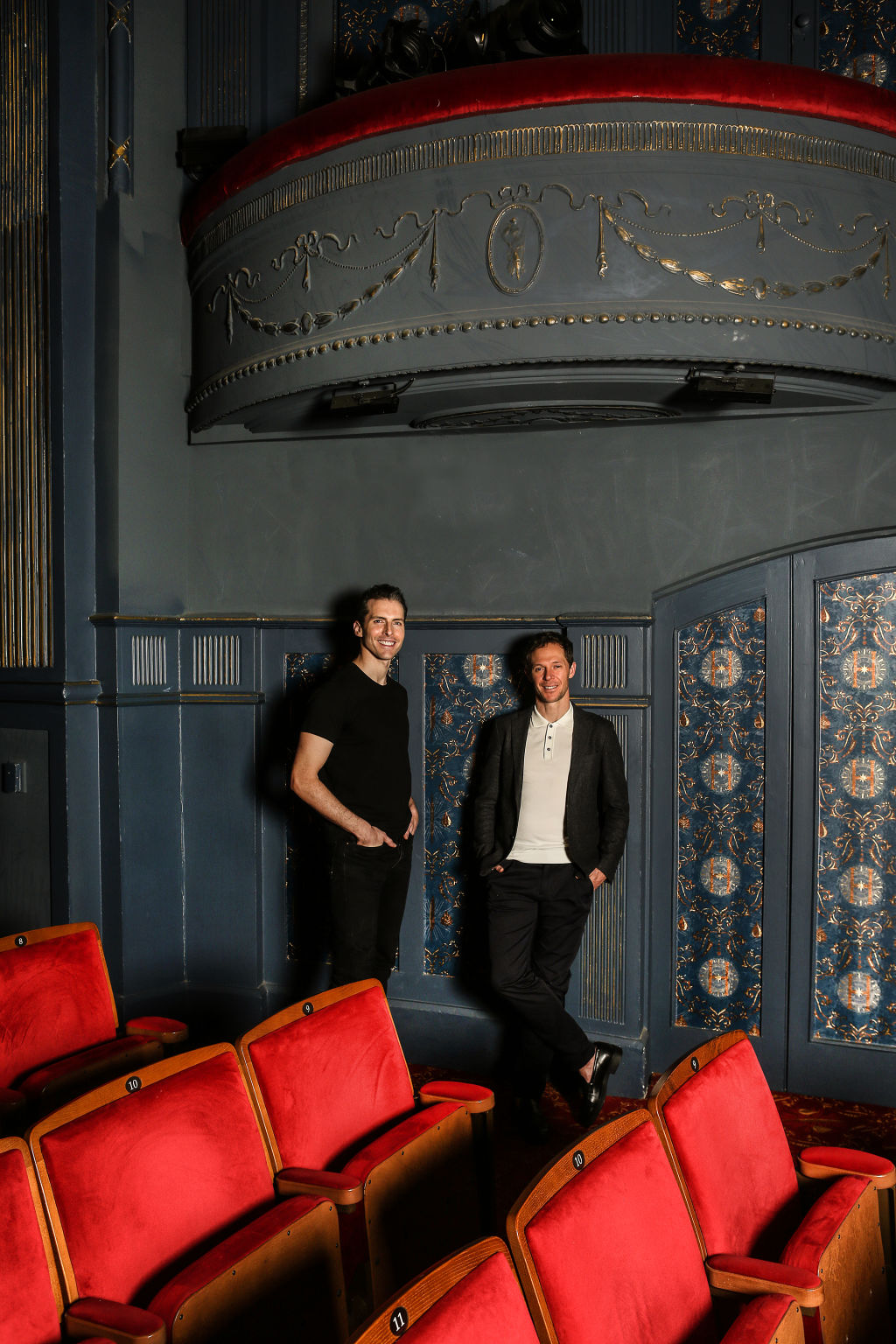The Melbourne cast and crew of Harry Potter and the Cursed Child reveal some of the show's magic

Gareth Reeves – who plays the adult Harry Potter on stage in Harry Potter and the Cursed Child – always knew there would be some die-hard fans in the audience; author J.K. Rowling’s characters are so beloved, how could there not be?
But none moved him as much as the 24-year-old Ukrainian woman who waited for him outside the Princess Theatre after a recent show, having herself only recently fled war-torn Kyiv. Reeves had noticed her from the stage during the curtain call.
“She was three rows from the front, standing up on her feet with tears streaming down her face as she was clapping,” Reeves says. “She said that it was the first time in four months that she had felt human. She said, ‘You opened my heart and lifted me out of myself, and I feel alive again’.
“This is entertainment and it is a lot of fun and it is magical and spectacular, but it also has a big beating heart of truth in it, and it affects people. This woman knows exactly what courage in the face of terror means and the play really spoke to her.”
First, shed any preconceptions you may have. This is not a play aimed squarely at children – anyone who’s 12 years of age or older will marvel at the magic and illusions.
Having reopened after its pandemic pivot, Cursed Child has been condensed from its two-part format to a single-night offering that runs for three-and-a-half hours.
In its new incarnation, it is a tightly-written play (not a musical!) that centres on the lives of the grown-up characters including Harry, Ron, Hermione and Draco, and its themes run deep.
It’s about the relationship between fathers and sons, and the expectations placed on each other. It’s about reckoning with the past, and trying to overcome regret. It will appeal to anyone who has struggled to see old patterns in a new way, or who believes their history informs their future, or who can’t shake the demons of old.
The original story of Harry Potter has been around only since 1997, but the archetypes are well established, and one need not be a “Potterhead” for this to resonate.
For Reeves, one of the most satisfying moments was when his brother, a tradie, came to see the shorter show, having previously been deterred by the two-parter.
“He’s never read a Harry Potter book or seen the films. He doesn’t know what a Patronus is, or a Hufflepuff, Slytherin or Gryffindor, but thoroughly enjoyed himself and was really impressed. That was the confirmation I needed – that we’ve made something really accessible and just as wonderful as the two-part version.”
“We’re getting people in who didn’t feel like they could come the first time.”</p> <p>
Lachlan Woods, who plays the older Draco Malfoy, joined the cast only since the show shifted gears, and soon realised that what might have been an intimidating situation – entering a play where all the principals were well-established – became an advantage for his character.
“It is kind of lonely,” Woods says. “I wait in the wings by myself; I don’t enter [onto the stage] with anyone else. I exit by myself. And everyone else in the show is accompanied by a sidekick or sibling or someone alongside themselves. There was a degree of isolation in that, for sure.”
But while isolation is one theme, Woods soon found Draco held another.
“The thing that has resonated with me around Draco is the idea of resilience,” he says. “I don’t want to give away too much, but all my family and friends have very deeply held assumptions about who Draco is, and what that means. And the amount of resilience required to get through life when you face so much judgment and negativity is pretty extraordinary.”

What else is extraordinary? The magic trickery of the show, overseen by Australian Illusions and Magic Associate Lee Cohen.
“Everything that you would imagine the life of a wizard to be is what you see play out on stage,” Cohen says, also wanting to keep the secrets secret.
In short, there’s disappearing stuff, fire stuff, flying stuff. That’s all she can say. But she eagerly talks about the audience reaction to it all.
“There are a lot of swear words! [And] I’ve had someone stand up on their feet and say, ‘How did they make that happen?’”
COVID has made the execution of these illusions even more challenging; if someone is off sick, stand-ins need to know not only the lines but also how to pull off the trick. There have been hairy moments.
“Putting on a production in the time of COVID has meant that understudies are pulling incredible feats,” Reeves says.
“Once we flew in an ex-cast member from Sydney with 24 hours notice to plug a hole. We do a RAT every morning and a PCR test twice a week; every day I get an email telling me who’s on, who’s off, who’s putting on centaur hooves tonight and, ‘Good luck everyone!’ We’ve become an incredibly resilient bunch. So many times we’ve got this show up and I can’t believe it.”
He estimates some illusions have required 1000 hours of practice, but even then “you never know who you’re going to be doing it with that night”.
Luckily, they are all playing to an appreciative audience. Harry Potter and the Cursed Child recently sold its millionth ticket, breaking the record for an Australian play – and since it’s in Melbourne exclusively, no tour around Australia will happen.
“We’re just this great theatre town in Melbourne,” Reeves says. “We’re so lucky. You look at the theatre precinct – these old, beautiful buildings – and I feel very, very proud,” he says. “I feel so privileged to be a real part of the fabric of the cultural tapestry of the city. It feels important.”
We recommend
We thought you might like
States
Capital Cities
Capital Cities - Rentals
Popular Areas
Allhomes
More







